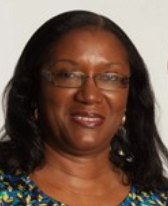| Candida Brooks-Harrison, LCSW President |
Bob Schachter, DSW Executive Director |
NASW-NYC
Statement on the Outcome of the
Presidential Election 2016
Perspectives from
Our Collective Past, Present & Future
November 10, 2016
NASW-NYC leads from a social justice and race equity position and strives to shine a light on pertinent issues. On Wednesday morning, our Nation and the Global Community awoke to a daylight reality steeped in the history of the United States. This reality most often thrives undercover, but in Election 2016 the world was watching.
It has been said that politics is war by other means. An expansion of this thought is that politics in America has been an extension of the Civil War. For almost two years we have been engaged in the political warfare of this election process that was divisive and overtly bigoted. Substantive policy messages were lost in vitriolic and inflammatory rhetoric and actual physical violence that harkened deplorable periods in our shared history.
The tactics used have made the divisions of this Nation completely visible and include battles for race equity, women’s rights, gender equality, LGBT rights, income equality, access to health care, criminal justice and immigration reform.
 Candida Brooks-Harrison The full effects on our Nation and on each of us will be determined over time, but warfare, including political warfare, is traumatic for all. These collective and individual traumas from hundreds of battles over the history of our country remain within our historical memories. For so many these memories have been triggered from the beginning of the election campaign, during the primaries and leading up to the election, and will continue.
Numerous commentators, politicians, pundits, “experts” and others will continue to talk and reflect on the dimensions of the election from political, economic, racial, gender, sexual orientation, moral, and religious perspectives. There will be continued questions about what is to be done, blame and shame about what was not done, and protests.
From a trauma informed perspective, we understand that so many in the social work community, along with the communities we belong to and serve, are experiencing the election process and its outcome at the deepest levels of our being. It is important to recognize the psychological and emotional tolls and the necessity for self-care in varied forms.
To not pay attention, in and of itself, can be dangerous. Trauma reactions can manifest in subtle and overt ways including a general malaise, muscle tension and headaches, feelings of hopelessness and helplessness, depression, anxiety, anger, rage or a triggering substance misuse.
 Bob Schachter From a social justice and race equity perspective, we understand the deeply rooted divides that were involved in the formation of the United States, which culminated in civil war, and persist today. We understand that activism and organizing are part of making America live up to the ideals that it expresses, but often falls short of in practice. We also understand that activism can be a form of self-care and community-care, ameliorating the sense of helplessness and fear. Social workers have the obligation to adhere to our Code of Ethics (section 6: Social Workers’ Ethical Responsibility to the Broader Society), and the history of the profession as activists for social justice and equity.
There is no doubt that there will be a tremendous amount of activity to figure out where we are regarding the 2016 presidential election and what we believe we can do about it, now and in the long term. It is with this in mind that NASW-NYC will be committed to playing a leadership role on behalf of the broad social work community, including collaborating with schools of social work, organizations that provide services, and the communities we serve.
At the same time, the aspect of trauma must remain within our awareness, to assure our collective well-being and to maintain our capacity to act with wisdom, compassion and a sense of justice.
|


